Tucson Arts Heroes
JDD Specialties completed another season of “Arts Heroes” for ON Media. Arts heroes are the backbone of the arts and culture communities in Phoenix and Tucson.
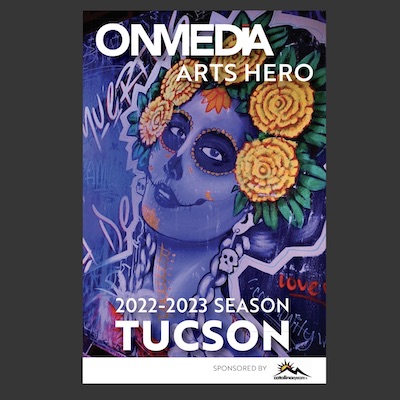
JDD Specialties completed another season of “Arts Heroes” for ON Media. Arts heroes are the backbone of the arts and culture communities in Phoenix and Tucson.

JDD Specialties provides monthly writing content to support the communication goals of the ASU Edson College of Nursing and Health Innovation.

In 2021, Social Spin, a social-impact startup, established a nonprofit foundation to manage its charitable work and bought property at the northeast corner of 24th and Portland streets that will be the site of its major push into affordable housing development. LISC Phoenix appreciates the work.
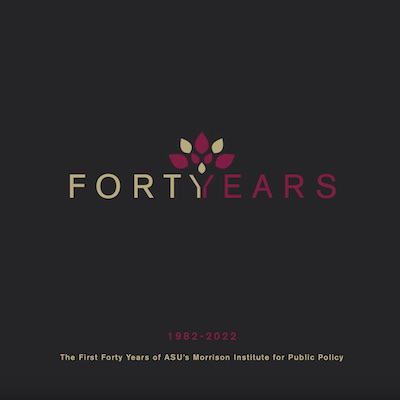
ASU Morrison Institute for Public Policy commissioned JDD Specialties LLC to write its 40-year history. The storytelling approach makes for fun, enlightening reading about the institute’s origins and survival.


State of Black Arizona continues its push to raise awareness about rare diseases with this white paper that explores and encourages better policies and practices that reduce possibilities of misdiagnosis and address the unacceptable consequences of delayed or denied access to care.

A feature article on Carolina Aranibar-Fernández explains how LISC Phoenix takes creative placemaking to next level with a new artist-in-residence position.
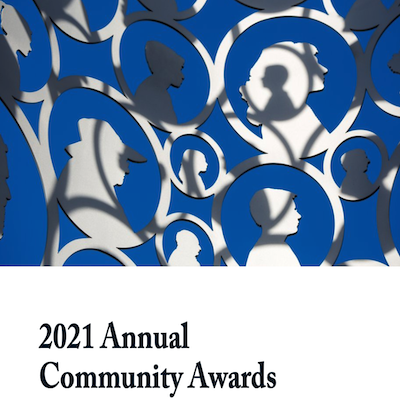
JDD Specialties continued an annual tradition of writing profiles of people and organizations that LISC Phoenix identifies as doing exemplary work in helping to build equitable communities. The 2021 honorees include:
UMOM’s Newsom Village, exemplary project: Newsom Village builds upon UMOM legacy of developing permanent affordable housing
Arouet Foundation’s Financial Opportunity Center, exemplary program development: Arouet Foundation rises to challenge of operating a LISC Financial Opportunity Center
Mesa Vice Mayor Jenn Duff, exemplary advocate: Jenn Duff’s continuous search for best ways for Mesa to develop starts with neighbors and local businesses
City Councilmember Robin Arredondo-Savage, exemplary advocate: Robin Arredondo-Savage brings small business, veteran background to Tempe community-development efforts
2020 Funds to Feed grantees and partners, exemplary community response: COVID-19-response Funds to Feed Grant inspired innovation, launched new era of grant-making
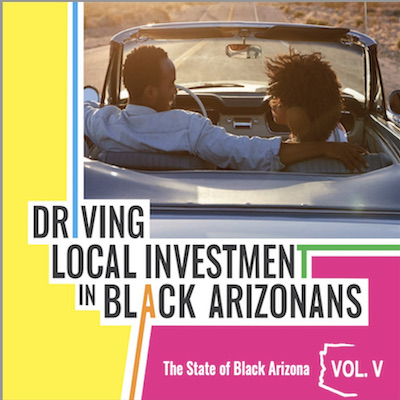
JDD Specialties provided editing, writing and consulting services to the State Black of Arizona for a series of reports released in 2021, including “Volume V: Driving Local Investment in Black Arizonans,” “Health and Well-Being of Black Girls and Women in Arizona” and the “State of Black Business.”

All families experience stress at some point. Knowing that family stress is a first sign of child abuse and neglect, Prevent Child Abuse Arizona in April 2021 issued a community call to action and toolkit. It’s an effort to raise awareness about the factors that protect families from overwhelming stress, and provide tips, tools, and messages to help community members strengthen families in everyday ways.
The toolkit was developed after a series of virtual listening sessions in 2020 with stakeholders in the child welfare system, including families who are in the system and who identified as being at risk of having contact with the system.
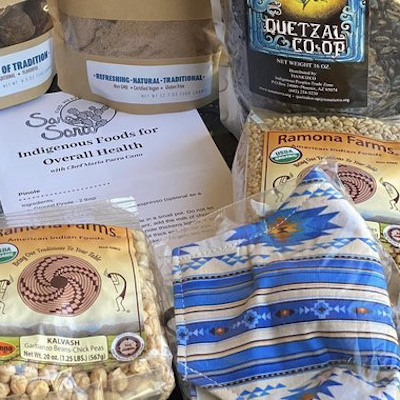
How does the Phoenix community development garden grow? With innovations like the Funds to Feed grant administered by LISC Phoenix. Here’s how a city of Phoenix CARES Act story begins:
COVID-19’s devastating socioeconomic impact on underserved communities already struggling in food deserts required a crisis response with as many helping hands as possible doing the hard work of ensuring individuals and families avoid hunger.
Or maybe what it took was the community development version of a green thumb, a grower’s heart and a commitment to plow new ground in grant-making.
(Photo by Cihuapactli Collective)
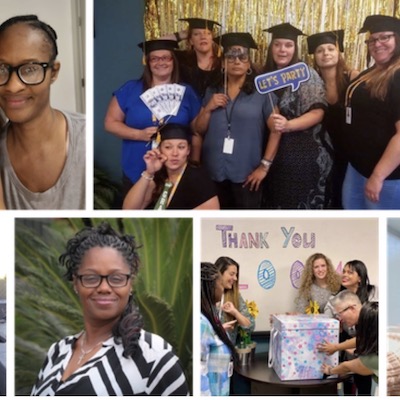
With the support of LISC Phoenix, the Arouet Foundation helps women newly released from Perryville Prison navigate complex systems that pose barriers and obstacles to their success. The Financial Opportunity Center, a special initiative of LISC, is a crucial part of Arouet’s support system to formerly incarcerated women.
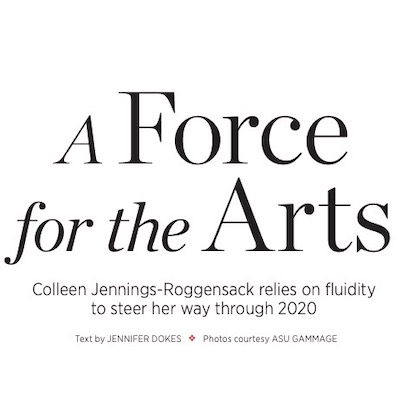
Colleen Jennings-Roggensack, ASU vice president of cultural affairs, is a force for the arts on the regional and national scenes. In 2020, her work centered on two pandemics: COVID-19 and racism. The Red Book Magazine featured her in its holiday issue.
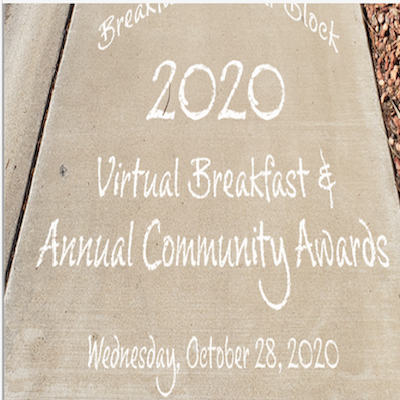
LISC Phoenix recognizes people or organizations that have helped it in its work to build equitable communities. JDD Specialties, as it has in years past, wrote profiles of the 2020 honorees.
Exemplary Collaborative, Arizona Home Matters Fund: “New Arizona affordable housing fund built on solid foundation of collaboration.”
Exemplary Project, Urban Living on Fillmore by Native American Connections: “Urban Living on Fillmore’s form follows Native American Connections’ functions.”
Exemplary Partner, U.S. Bank: “U.S. Bank COVID-19 relief funds follow a trail of trust, partnership to transit corridor microbusinesses.”
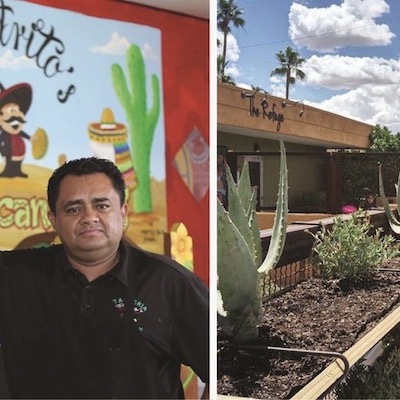
The unprecedented economic impact of COVID-19 took a huge toll on small businesses. LISC Phoenix is in the thick of helping those businesses, especially those owned by women and people of color, get through the crisis.
Here are some of the stories that capture some of LISC’s equitable economic development work:
“2 Beloved Small Restaurants receive Verizon LISC Small Business Recovery Fund Grants”
“Banking on community trust and relationships to secure equitable access to PPP”

Heroic efforts for the arts
For the third consecutive year, JDD Specialties wrote all profiles for the ON Media Arts Hero program. Arts heroes are honored each month in theater programs for venues in Phoenix and Tucson.
The 2019-20 profiles of heroes are available in digital booklets:
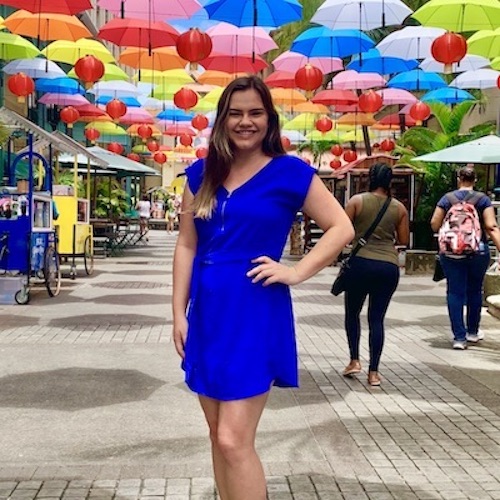
Bianca Buliga grew up thinking ‘business’ was a dirty word and that nothing good comes of its practice. Her early perceptions seemed diametrically opposed to her life goal of making positive, societal change. The 2017 graduate of the ASU Thunderbird School of Global Management knows better now. In April 2020, She was featured in the school’s Alumni Spotlight.

Gbemi Abudu’s ambition to lead a fulfilled life could very well change the worlds of young women and transform markets in Africa. The ASU Thunderbird School of Global Management Alumni Spotlight was on her in April.

The ASU Thunderbird School of Global Management Knowledge Network website highlights the impressive work and expertise of faculty. Here are examples of some of the work JDD Specialties added to the website:

JDD Specialties has contributed editing and writing technical assistance to the ASU Mary Lou Fulton Teachers College’s principled innovation initiative since 2018. That work continues in 2020 with heavy support of a variety of storytelling projects that accelerate awareness and understanding of principled innovation.
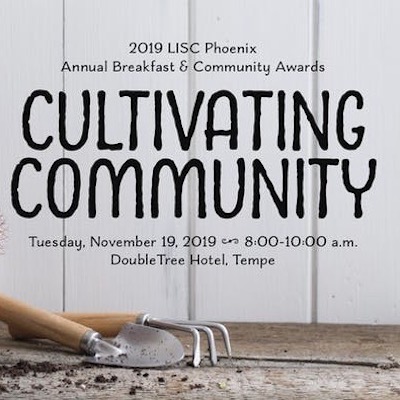

This wrap-up of a LISC Phoenix event that has become a major celebration of community development work in Arizona featured LISC COO Annie Donovan. The national expert in community development and impact investing, shared five things to focus on when addressing structural factors that create and perpetuate poverty in our communities.

This personality profile about Marlena Robbins is about how she puts all of herself into her work. And there is so much to the person that she is. She is an artist with a keen intellect and a biding respect for indigenous culture. (The article appeared in the holiday 2019 issue of The Red Book magazine.
(Photos by Tina Celle.)

The Red Book magazine wanted a profile on an artistic newcomer who has quickly made a name for herself in the Valley. She brought a lot with her in her move from Louisiana to Arizona.
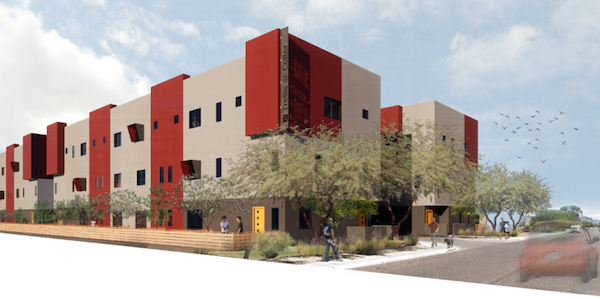
(Note: This article is part of “Communities on the Line,” a LISC Phoenix series on transit-oriented development in the Valley.)  A ¾-acre residential lot in the West Camelback Corridor is long past its prime as a single-family-home property. As fate and determination have it, that’s a very good thing for 20 future homeowners and a neighborhood experiencing revitalization spurred by light rail.
A ¾-acre residential lot in the West Camelback Corridor is long past its prime as a single-family-home property. As fate and determination have it, that’s a very good thing for 20 future homeowners and a neighborhood experiencing revitalization spurred by light rail.
Trellis broke ground in May on a townhouse development in central Phoenix at 1617 W. Colter St. Trellis @ Colter is a rare, unique new home ownership opportunity within the Valley Metro light-rail corridor where thousands of units of multifamily rental housing have sprung up along the 28-mile route in recent years, including projects underway to the south and west of the townhomes.
But for Trellis, which has a long history in single-family home lending and building, it didn’t make sense to put three or four small units on the lot near the 19th Avenue and Camelback Road light-rail station. Trellis delved into density options for home ownership because of the lot’s proximity to light rail, its central city location and because of all the commercial activity occurring on Camelback Road. Continue reading

JDD Specialties helps Castelazo Content achieve its goals by delivering content for one of its clients, the Thunderbird School of Global Management at Arizona State University.

Castelazo Content has tapped JDD Specialties to write a series of articles about notable alumni of its client Thunderbird School of Global Management.
April 2020, Bianca Buliga, marketing manager
April 2020: Gbemi Abudu, managing partner, BMGA Enterprise LTD
August 2019: Solomon Frank, Outer Atoll Resources
July 2019: Wolfgang Koester, chief evangelist, Kyriba
June 2019: Kim Williams, Warner Bros. executive

ASU Watts College of Public Service and Community Solutions assigned to me a project that made my heart sing. I wrote profiles of the six outstanding graduates for Spring semester 2019. Jennifer Harrison, Kelly Walsh, Josh Loescher, Aly Perkins, Katharine Leigh Brown and Joanna Williams are phenomenal students and exceptional human beings.
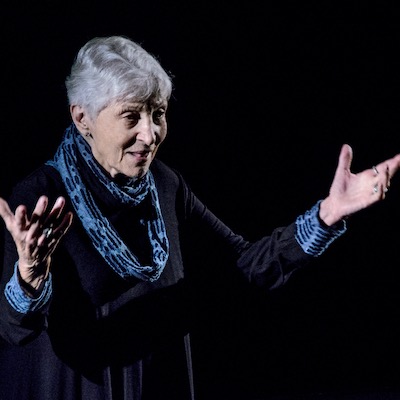
(Photo credit: Howard Paley)
ON Media celebrated the third year of its Arts Hero program in Phoenix. (It conducts the same program in Tucson.) This has become one of my favorite annual projects because of all the talented and extraordinarily decent people I meet.
Fran Cohen Smith, a champion of modern dance in Arizona and a driving force behind Wolf Trap, an arts-integrated, early-child-learning program, was one of my favorite interviews of the 2018-19 season. We laughed and talked for hours at First Draft. Her profile appeared in March programs at Valley venues, about two months before she died at 87. Fran was seen dancing on stage with children just weeks before she died.
(Photo credit: Howard Paley)

The third cohort of Native American businesswomen completed the Project DreamCatcher program in May 2019. Project DreamCatcher is funded by Freeport-McMoRan and implemented by the Thunderbird School of Global Management. The article about the program and its commencement ceremony was posted to the Thunderbird Knowledge Network website, which receives content support from Castelazo Content.
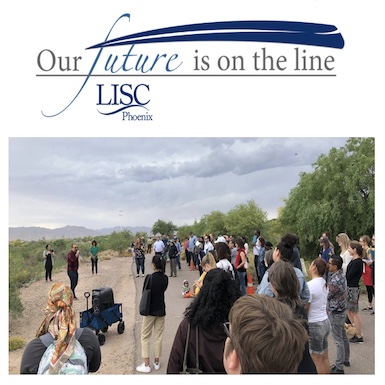
Editor’s note: This article was written for LISC Phoenix and is posted on its website.
On a recent spring day in south Phoenix, nature served up a chilly wind and some sprinkles of rain as a reminder of its power to affect how people feel. A few dozen desert dwellers who had gathered at the Rio Salado Recreation Area for a conversation about the socioeconomic importance of place shivered and tried to brace themselves.
It was an appropriate metaphor for a day of reflection about the powerful, unnatural force of displacement. It’s chilling. Community development institutions and organizers, in Phoenix and throughout the United States, are hunkering down in their fight against it.
Displacement is the forced movement of people from places where they have deep connection to the land and typically where there is cultural relevance. When it moves low-income households out of their neighborhoods to make way for housing that only higher-income renters and buyers can afford, displacement ushers in gentrification.
David Greenberg, national director of research for LISC, sees the need for well-organized counter movements to displacement, particularly in the area of affordable housing.
“Through organizing, it’s often possible to expand upon what we think might otherwise be possible to support the affordable housing movement more broadly and bring together people to policy to shape place,” Greenberg said.
Continue reading
A public-private partnership with layers of leveraged resources produced huge community impact in the form and function of Valor on Eighth, an affordable housing complex with a special focus on veterans.
This is part of the “Communities on the Line” series that I write for LISC Phoenix.
Honor, dignity and opportunity took up residence at Valor on Eighth when the Tempe apartment community designed and built for under-served veterans opened in January. Hope and determination have made themselves comfortable there, too.
With Valor, housing and veterans’ advocates scored a victory in the ongoing battle to create decent, affordable living environments for those who have served our country. Valor is the only affordable housing apartment community in Arizona that puts the needs of veterans with families front and center.

I have been asking questions for more than 30 years. I know a good answer when I hear one. Now I know what it’s like to be on the other end of that process.
VoyagePhoenix was kind of enough to share my story of founding JDD Specialties. It was a fun Q&A and an honor to be included in the online magazine’s popular “Phoenix’s Most Inspiring Stories” feature.
Here’s a link to the article posted on Oct. 19: Meet Jennifer Dokes of JDD Specialties
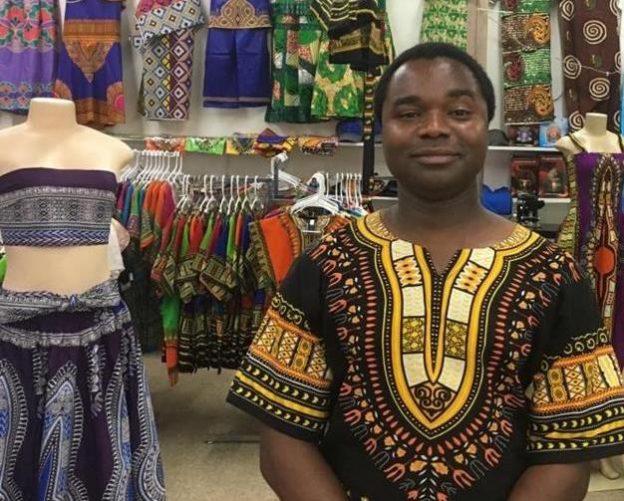
(Editor’s note: This article first appeared on the LISC Phoenix website.)
Perodin Bideri, a west Phoenix shop owner who was raised in refugee camps in Tanzania, and Christy Moore, a veteran Valley nonprofit executive who is on a mission to disrupt the landromat industry, are in the same boat.
Both are seeing things — opportunities, specifically. Both have a brand of ambition that’s engaging and inspiring; it invites participation.
And both are navigating waves of success that often come with access to capital made possible through a partnership with nonprofits LISC and Kiva, an online crowdfunding platform. For as little as $25, a lender can join a fund that allows borrowers to receive loans of up to $10,000.
Access to capital is a major hurdle for emerging small-business owners. They don’t qualify for credit from traditional lenders. If they do secure loans, they come with high interest rates and fees.
With a Kiva loan, borrowers pay zero interest and no fees. That got the attention of Bideri, owner of B&R African Styles.
“When I was introduced to Kiva, it was a great opportunity to open doors that grow my business,” Bideri said. “To get a loan with zero interest? I was in.”
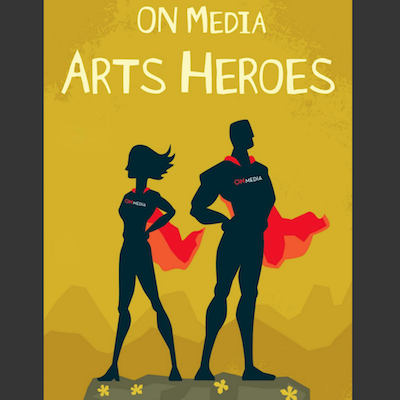
JDD Specialties wrote all profiles for the second annual ON Media Arts Heroes program. ON Media selected 17 arts heroes in Phoenix and southern Arizona. Their profiles appeared monthly in theater programs during the 2017-18 arts season.
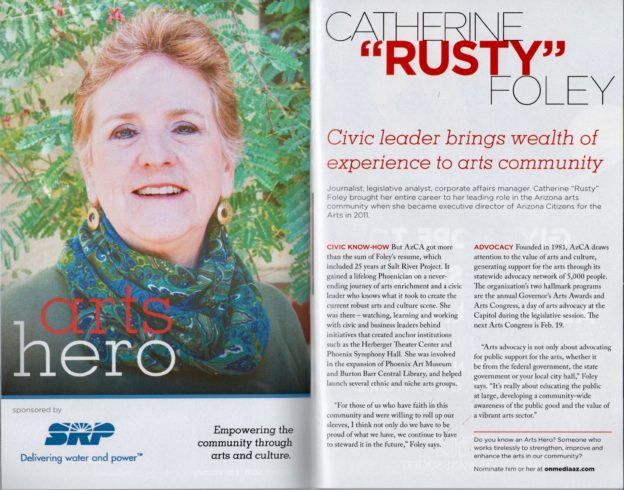
I’ve had the pleasure of interviewing nearly two dozen people in the Valley and southern Arizona for the On Media Publications Arts Hero project. It’s been a labor of love during the past few months because I’ve met some of the coolest people doing amazing, righteous things for our communities.
Most of the honorees are new to me. But Rusty Foley, the Phoenix Arts Hero for January, is very familiar. She built a legacy long before she put her talent and energy into Arizona Citizens for the Arts. I knew her first as a very good journalist and then as a community mover-shaker while at SRP.
You can call Rusty a hero. I call her a bad chick. Not many people hold that high status in my book.

In 2015, LISC Phoenix added an economic development component to its strategic plan to revitalize neighborhoods. In 2016, the nonprofit identified four corridors along the Valley Metro light rail line that could benefit from LISC-style comprehensive economic development efforts. In 2017, LISC Phoenix, with the help of JDD Specialties, will highlight the challenges, opportunities and successes of those corridors through a series called, Communities on the Line.
Valor on Eighth marshals resources, inspires hope for veterans
LISC and Kiva help local shop owners gain critical access to capital
Affordable loan opportunities growing from LISC partners
LISC push on economic development strikes a chord
Long-awaited redevelopment heating up in Apache Blvd. corridor
Creative economic development efforts grow success in downtown Mesa
Bazaar days make a world of difference at 19th Ave. and Camelback
Mesa Artspace Lofts will have good bones
‘Happy City’ author urges push for safe, healthy transportation corridors
With new clinic, MPHC no longer hidden treasure in Tempe
There’s more than meets the eye on West Camelback Road
Visitor center enriches public understanding of indigenous people
NAC combines power of housing first and TOD at Camelback Pointe
A second chance for McDowell Road’s Miracle Mile

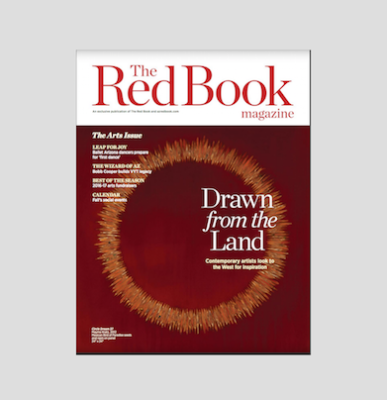
The Red Book, a resource for those involved in the social and philanthropic community, and azredbook.com launched a new magazine. The Red Book Magazine will have a single focus. The premier issue published in September 2017 focused on the arts. JDD Specialties was honored to write a feature, “Leap for Joy,” for the first issue of The Red Book Magazine
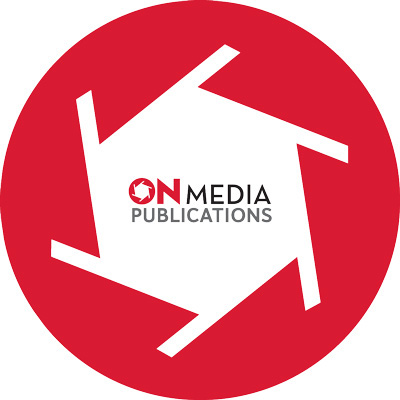
On Media hired JDD Specialties to write profiles for its Arts Hero project. The 17 profiles will appear in the 2017-18 theater programs published for Phoenix and Tucson performances.
September Phoenix Arts Hero
 Coffee shops are an integral part of a city’s connective tissue. I like their place in my world. Highlights of just the past few days:
Coffee shops are an integral part of a city’s connective tissue. I like their place in my world. Highlights of just the past few days:
Giant Coffee: The mayor is there. He asks me if I miss daily journalism. (That’s an emphatic, “NO!”) I tell him it’s good to see him out and about. He says it’s better than staying inside Phoenix City Hall. He dashes off, in that trademark way he comes and goes. He left me me wondering where his next political home will be, but not in a political junkie way. It was more personal.
The Refuge: That’s the site of a business meeting with someone who is the wind beneath powerful wings. There’s lots to discuss about a long-term project that could revolutionize the way we help people in need, how we make our communities stronger. But first things first: We take our time catching up on family news. She’s wearing a sharp, black dress, heels and pearls. I’m in a shirt, jeans and flats. We’re both in appropriate work attire to handle the business before us. That’s just how we roll in Phoenix.
First Draft: Even when I’m not there, I’m there. While at the gym, I get a text from a dynamo who I’m counting on to win the most interesting Arizona legislative race in 2018. She’s at Changing Hands bookstore where we’ve bumped into each other a couple of times when I’m working out of the adjacent First Draft. It’s to the point where she expects to see me every time she’s at the bookstore. I like that connection.
None of this happens without the excuse to drink coffee and tea and to be in interesting places. Coffee shops make you feel like the world is small and intimate, but they are also places that help you keep the big picture in sharp focus. There’s a certain magic in all of that.
Note: This blog is an installment of the LISC Phoenix monthly series, “Communities on the Line.”
The area near the Park-n-Ride lot at 19th Avenue and Camelback Road is one of the most ethnically rich, culturally diverse parts of Phoenix. It has been for decades, largely because of a large concentration of immigrants, including refugees who are part of resettlement programs.
It is one thing to find shelter. It is another thing for refugees and immigrants far removed from the life and culture they knew to earn a living that affords the coveted American dream.
But that, too, is happening in neighborhoods near the Park-n-Ride at the Valley Metro light-rail stop at 19th Avenue and Camelback Road. Organizations like the International Rescue Committee and Local First Arizona support a growing microenterprise business community among Phoenix immigrants and refugees. Many of the small businesses in the area — restaurants, a deli, barber shops, a clothing store — are owned by refugees who became U.S. citizens.
See for yourself what’s happening in the neighborhood. On May 6, the third World Bazaar and Phoenix Community Market at the Park-n-Ride lot will offer food, crafts and entertainment that reflect the cultures hidden in plain view in Phoenix. The free, family-friendly event is from 10 a.m. to 2 p.m.

It’s a good day when references to Sisyphus, Machiavelli and John Adams pop up in perfect moments during a short interview. What a departure from the unavoidable social media poison accepted as civic engagement and productive discourse.
Thoughtfulness and community spirit can sprout and grow in the harshest political and social landscapes. Phoenix, in many respects, is such a place. But here’s a riff that warms my heart. It’s by a Valley business leader, who would be considered a conservative in another time and place, discussing one challenge of making Phoenix the healthy, inclusive, resilient place it should be:
“I’m very passionate about a legacy for this community, for my children and my grandchildren to have a cultural economy that feeds the soul of the community but also attracts and retains the kinds of businesses that we need for economic development. It’s critical to our success. And while people will say that with platitude and with words, there is not a lot of action. I’m one of the lone rangers out there just beating the drum. I think I’m like John Adams: I’m obnoxious and disliked about this, but, nonetheless, it’s important. In my world, no is just the beginning of the conversation.”
Word. Right on. Amen.
Getting to “yes” on healthy societal changes requires a long view, steadfastness and commitment.
Persistence.
The resistance language spoken so loudly today in the public square means nothing without persistence. Resistance movements are often spirited are difficult to sustain.
Persistence infused with insistence endures. The most effective change agents have led righteous persistence movements.
Establishing an American society where human values are self-evident is a work in progress. It always has been. The best work on universal goals always has been at the local level — by city block, neighborhood and zip code and by school, city council and legislative districts. An insistence on doing the right thing changes the world around you.
That principled work is harder in some moments than in others. “No” can sound emphatic, and it’s dispiriting. We’re in one of those moments. Persistence pushes us forward on the path to “Yes!”
It’s Friday the 13th and I’m thinking about my incredibly lucky start to what will be one of the most challenging years of our lives. Worries about my nation are allayed by dozens of people who were part of my world during the first weeks of 2017.
A mix of serendipity and intentionality put me in contact with people who understand that strengthening the place where we live helps build a more perfect union. Some of them are adding to their proud legacies. Others are hard workers who are committed to finishing important work they’ve started. Some are just getting started.
Yes we can. Yes we did. Yes we will. Sí, se puede. Indeed.
 The New Year begins with calls to address the fallout of what can fairly be described as the great political earthquake of 2016. Yes, let’s do act with newfound determination to make things better, but let’s also make an investment of time and effort to think before we act.
The New Year begins with calls to address the fallout of what can fairly be described as the great political earthquake of 2016. Yes, let’s do act with newfound determination to make things better, but let’s also make an investment of time and effort to think before we act.
Next week, there are two fantastic opportunities to immerse in thoughtfulness that informs efforts to create the kind of healthy, productive society we want in the Valley. On Tuesday, the Virginia G. Piper Charitable Trust will host an installment of its Thought Leaders Series with a focus on “Advancing Resilience in Arts and Culture: The Value of Cross-Sector Partnerships.” The forum at the Beus Center for Law and Society in downtown Phoenix is open to the public.
As a Piper Trust thought leader, Chris Ronayne, president of University Circle in Cleveland, an innovative square mile of urban development that features universities, hospitals, museums, parks, restaurants and residential spaces, will share lessons learned about creating a resilient community that has become a destination point for living, working and playing.
 On Thursday at South Mountain Community College, the Arizona Community Foundation, the Center for the Future of Arizona and the Girl Scouts–Arizona Cactus-Pine Council will host a conversation with Robert Putnam, author of the fantastic book Our Kids: The American Dream in Crisis, which dug deeply into the perils of the growing opportunity gap among young people in the United States. The book published in 2015 speaks to the dangers of unequal opportunity, and it proved to be a fascinating precursor to some of what transpired in the national election.
On Thursday at South Mountain Community College, the Arizona Community Foundation, the Center for the Future of Arizona and the Girl Scouts–Arizona Cactus-Pine Council will host a conversation with Robert Putnam, author of the fantastic book Our Kids: The American Dream in Crisis, which dug deeply into the perils of the growing opportunity gap among young people in the United States. The book published in 2015 speaks to the dangers of unequal opportunity, and it proved to be a fascinating precursor to some of what transpired in the national election.
While we ramp up resolve in 2017 to fix what clearly is broken and to protect programs and values we fear are under assault, let’s embrace fundamental change in our approaches to building up society. Let’s listen and learn before we act.
 I’ve been floating in the center space that William A. Galston and William Kristol write about for a long time. Those who occupy center left and center right are often accused by those on the far left and far right as being fence-sitters, of having no core values. That’s offensively dismissive.
I’ve been floating in the center space that William A. Galston and William Kristol write about for a long time. Those who occupy center left and center right are often accused by those on the far left and far right as being fence-sitters, of having no core values. That’s offensively dismissive.
Those in the center can fairly be accused of sitting on the sidelines while the partisan left and the right duke it out. That’s been a mistake and we see the lack of good governance that results.
I love this in the duo’s Viewpoints column:
“The basic institutions and principles of liberal democracy are under assault. Many of us who are defenders of this distinctive form of self-government have tended to take for granted widespread agreement on these principles; we have had confidence in the strength of these institutions. This is a complacency we can no longer afford. …
Opportunity, security, accountability, ingenuity — these are the pillars of a New Center. We do not know what policies a New Center will yield. Nor can we predict what institutional form or even party alignment it will take.
But the alternative to a coherent and effective New Center is a degree of public discontent that could end by undermining democratic self-government itself. ”
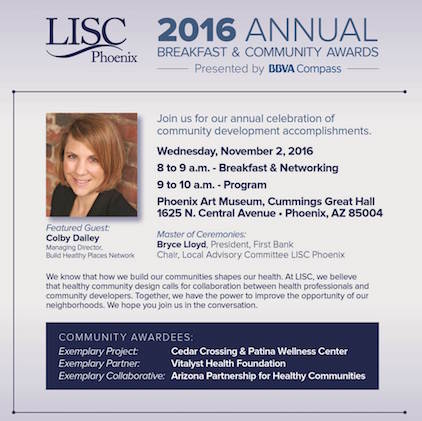
JDD Specialities has skills honed in a long career in daily journalism to produce content quickly. This article about a client’s major event was delivered in less than 24 hours.
 I like to think the late Monsignor Ed Ryle would have been an intellectual voice of reason, compassion and greater good in this awful excuse for a presidential campaign. I would have loved to have heard his take on the minimum wage proposition on the Arizona ballot and the campaign for Maricopa County sheriff.
I like to think the late Monsignor Ed Ryle would have been an intellectual voice of reason, compassion and greater good in this awful excuse for a presidential campaign. I would have loved to have heard his take on the minimum wage proposition on the Arizona ballot and the campaign for Maricopa County sheriff.
I flatter myself by thinking he would have invited me to lunch (or to “break bread,” as someone reminded me he was fond of saying) to share thoughts about politics and policy. On election night, he might have been spotted sipping a glass of wine with other political junkies.
He is so missed.
A few of his friends and those who have had long respected Monsignor Ryle’s work for social justice in Arizona have been trying to keep his memory alive. The Monsignor Edward J. Ryle Fund was established to promote intelligent discourse in the public square. We think he’d be proud of the work done in his name.
I like to think he’d get a kick out of the way we help pay for annual programs. We sell a lovely Sonoma County pinot noir labeled in his honor, called The Monsignor.
We’re taking orders for full and half cases now. It will be available for pickup on Dec. 6. Contact me for details.
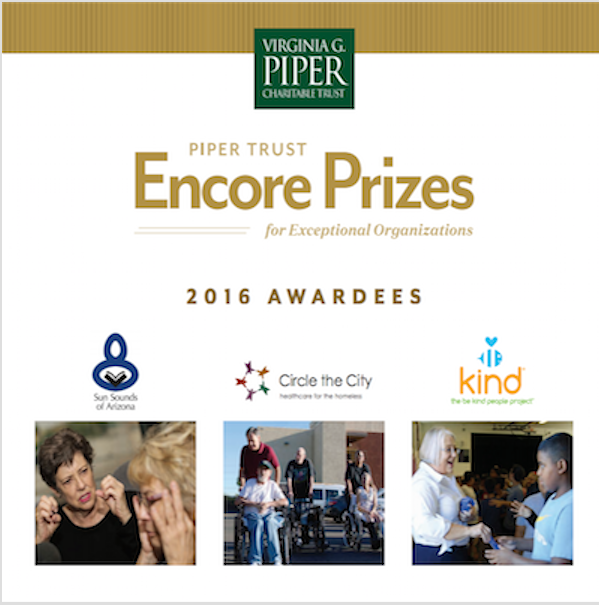
The Virginia G. Piper Charitable Trust gave JDD Specialities LLC the honor of writing short profiles of the 2016 awardees of Encore Prizes for Exceptional Organizations. The 2017 award will go to an exceptional individual.

A source rubbed his hand on my butt. “God, you’ve got a nice ass,” he said. I was 40-something.
That’s my contribution to the astonishing #notokay phenomenon igniting a soocial media national conversation about sexual assault.
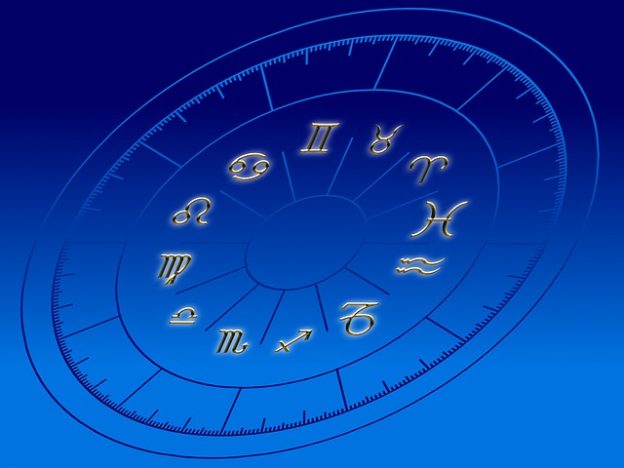
“To be persuasive, you have to get the facts right — a no-brainer for you. Details and integrity are the spokes in your wheel. Now you just need to give those facts an emotionally compelling context and you’ll be set. — Horoscope, Aug. 25, 2016
Reading my daily horoscope is a guilty pleasure. A couple of times a year it’s exactly right. Like today.

A dumbbell spoke at my morning workout at the gym.
A young personal trainer dispensed all sorts of social and business advice to his young client during warm-up on the elliptical. The trainer looks like a short, buff Ken doll. The equally buff client is, shall we say, swarthy. Dark and handsome.
Their conversation about women and business is what you might hear at a young bucks’ happy hour or the 19th hole or maybe the break room near the executive suites. Ken doll is schooling Dark-and-handsome on the dangers of having a serious relationship while trying to be a successful entrepreneur. There’s no time for the kind of commitment a girlfriend wants when you’re trying to get ahead, he said.

How John McCain can condemn Donald Trump for outrageous statements, such as those leveled at the Gold Star Khan family, but still endorse the Republican nominee for president is a fair question that’s easy to answer. It’s because he’s walked in Trump’s shoes and lived triumphantly as a politician to benefit from it.
Arizona’s senior senator and the 2008 Republican nominee for president knows a thing or two about saying stupid, incredibly cruel things, often about people who deserve better. McCain also knows it doesn’t take much for voters, especially political party faithful, to forgive, forget and elect. McCain has benefitted from Arizona voter magnanimity for 34 years as a U.S. representative and senator.
 Community paramedicine could revolutionize the business of healthcare delivery in Arizona. Several Arizona communities have launched fire service-based community paramedicine programs. Mesa has the largest, most developed program and is tackling thorny issues that address the viability of community paramedicine.
Community paramedicine could revolutionize the business of healthcare delivery in Arizona. Several Arizona communities have launched fire service-based community paramedicine programs. Mesa has the largest, most developed program and is tackling thorny issues that address the viability of community paramedicine.
This recent Arizona Republic article explains the billing and reimbursement issues that are key to program financial sustainability.
A Vitalyst Health Foundation policy primer, written by JDD Specialties, provides an overview of the community paramedicine component of mobile integrated healthcare in Arizona and highlights six fire-service based programs. Vitalyst will profile at least six additional community paramedicine programs this year.
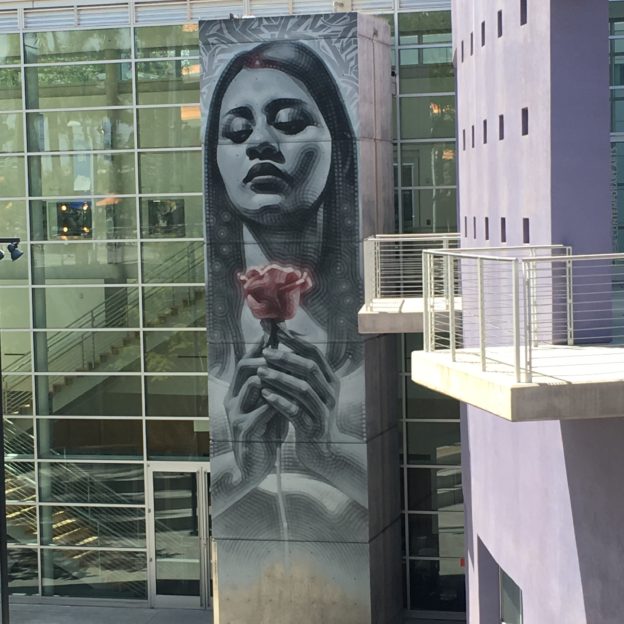
The arts and culture component in comprehensive community development is more than a pop of color in a housing project or a hint of traditional neighborhood vibe. Individual and group stability, civic leadership, creative problem-solving, and hope all spring from intentional efforts to instill arts and culture in community revitalization.
The considered opinion of a panel of experts discussing creative placemaking at an April 6 event in Mesa made clear there is more to arts and culture in community development than meets the eye.
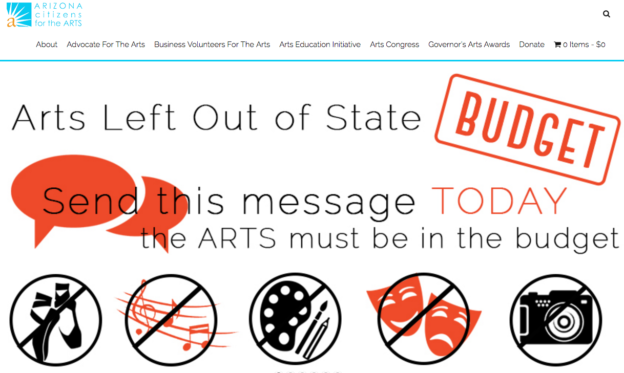
“If you’re not willing to stand up for what you care about, others will control the agenda.”
– Rusty Foley, executive director, Arizona Citizens for the Arts, in a Phoenix New Times article about the absence of arts funding in the state budget
Amen, sister.
But Rusty’s call for civic engagement applies to so much more than arts funding.
 This blog post about Proposition 123 on the May 17 ballot validates my choice of Arizona Teacher of the Year Christine Marsh as an inspiring Arizonan to watch in 2016.
This blog post about Proposition 123 on the May 17 ballot validates my choice of Arizona Teacher of the Year Christine Marsh as an inspiring Arizonan to watch in 2016.
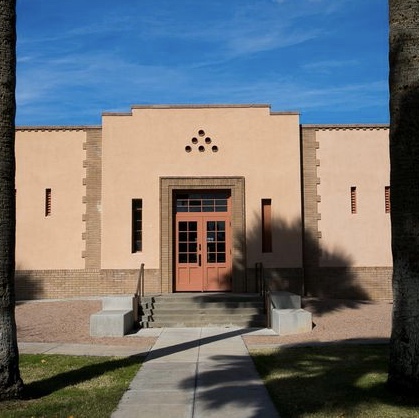
(Written by JDD Specialties for Terry Benelli, executive director of LISC Phoenix.)
Eskwel uma angkyahkya LISC.
“Thank you, it’s good you all came here today to the LISC event,” White Spider Girl said in Hopi language. What followed her greeting at a March 22 gathering of LISC executive directors in downtown Phoenix was a brief, compelling account in English of the 99-year history of the Phoenix Indian School site three miles away.
At the end of the boarding school story of tragedy and triumph, White Spider Girl, also known as Patty Talahongva, community development manager at Native American Connections, smiled and said she wished she had a drum roll for the exciting news she would share publicly for the first time: City-financed construction begins immediately to restore the historic Phoenix Indian School music building. Native culture will activate the public space in the spring of 2017.
Expect drumming and so much more.
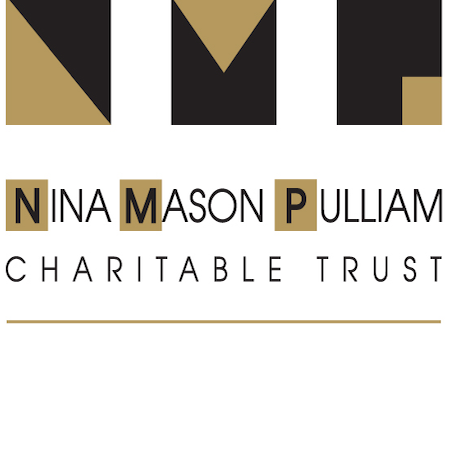
In 2016, the Nina Mason Pulliam Charitable Trust joined the list of satisfied JDD Specialties’ clients. The trust uses JDD Specialties as an independent contractor for writing, including news releases and guest columns.
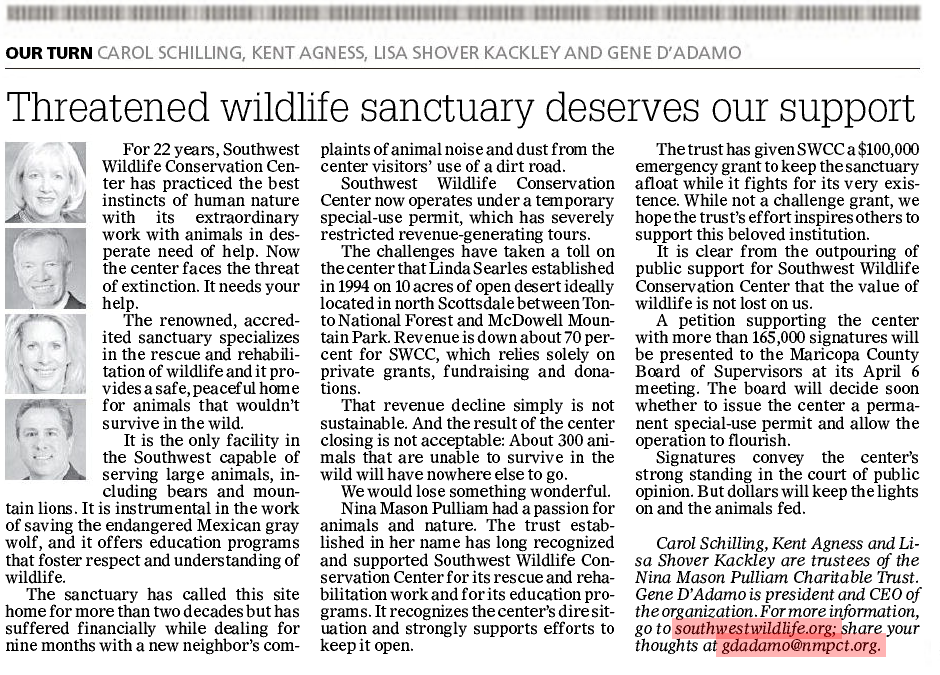
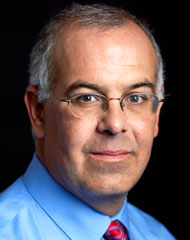 Two great passages from David Brooks’ “Not Trump, Not Ever” column.
Two great passages from David Brooks’ “Not Trump, Not Ever” column.
“Moreover, many in the media, especially me, did not understand how (Republican voters) would express their alienation. We expected Trump to fizzle because we were not socially intermingled with his supporters and did not listen carefully enough. For me, it’s a lesson that I have to change the way I do my job if I’m going to report accurately on this country.”
“Donald Trump is an affront to basic standards of honesty, virtue and citizenship. He pollutes the atmosphere in which our children are raised. He has already shredded the unspoken rules of political civility that make conversation possible. In his savage regime, public life is just a dog-eat-dog war of all against all.”
Presidential elections give voters an opportunity to have their say. Their choice in leaders says a lot, and it’s tradition to respect the message. This year is no different. Primary election voters are who they say they are. In 2016, we’re struggling to respect the clear message that rejects any notion of appealing to what Abraham Lincoln called the “better angels of our nature.”

Policy primers and briefing papers produced by Vitalyst, formerly St. Luke’s Health Initiatives, contribute to public discussions about improving Arizona’s health-care infrastructure. JDD Specialties provided writing and editing services that led to publication of “Fired Up: Community Paramedicine Models Blaze a Trail for Healthcare Delivery Reform,” “Community, Health, Savings: The Power of Community Health Workers in an Evolving Healthcare System” and “Connecting the Dots: A Healthy Community Leader’s Guide to Understanding Hospital Community Benefit Requirements.”

JDD Specialties helped the Nina Mason Pulliam Charitable Trust with a multipronged effort to promote public support for the Southwest Wildlife Conservation Center whose 22-year existence is threatened by a new neighbor’s complaints. Preserving endangered Mexican gray wolves is among the accredited sanctuary’s noble deeds. JDD Specialties wrote the Pulliam Trust news release that informed media coverage of the issue; a guest column that provided some inspiration for an editorial and an “advertorial” that encouraged donations to the center.(Photo by Southwest Wildlife Conservation Center.)

LISC Phoenix was among the early supporters of a plan to turn the historic music building at Steele Indian School Park into a Native American cultural center. LISC Phoenix executive director Terry Benelli said the renovated center could be one of the region’s best examples of creative placemaking with cultural emphasis.
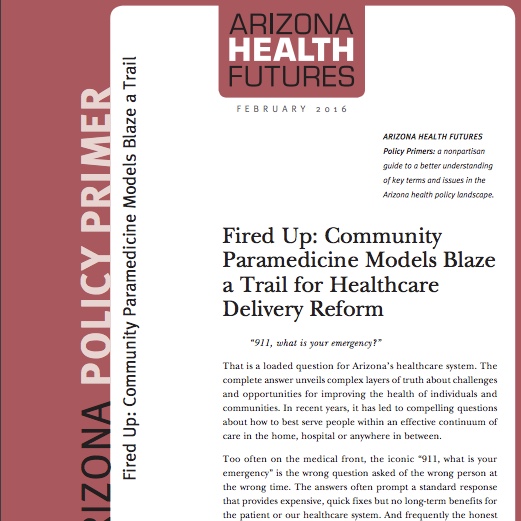
JDD Specialties applies journalism skills to help clients explain complex issues, such as this Vitalyst Health Foundation policy primer on the community paramedicine component of mobile integrated healthcare. The February 2016 report required interviews with several leaders of Arizona fire departments and districts. Additional profiles on Arizona fire-service based community paramedicine programs will be posted on the Vitalyst website.
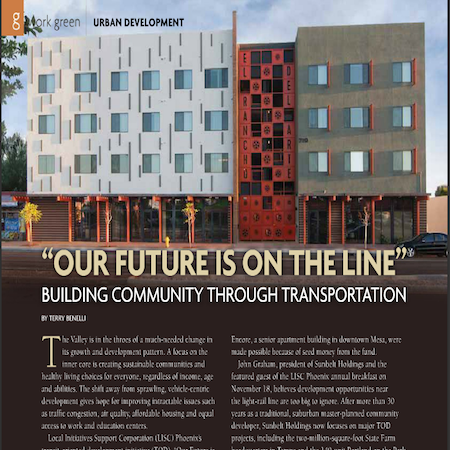
Transformative organizations like LISC Phoenix look for ways to explain their impact on the community. JDD Specialities helped facilitate publication of an article about transit-oriented development in Green Living Magazine.
 Developers are following John Graham’s lead in urban development. Central Phoenix is booming because of it.
Developers are following John Graham’s lead in urban development. Central Phoenix is booming because of it.
Graham was the featured guest at the recent annual LISC Phoenix Annual Breakfast and Community Awards. Here’s my recap of the breakfast:
Longtime business leader John Graham developed a compulsive interest in urban infill development on opening day of the Phoenix area’s light-rail system in 2008. At that time, sprawling, greenfield suburban projects highlighted his real-estate company’s portfolio.
“What I noticed during that one ride was how much available land there is,” Graham said at the 2015 LISC Phoenix Annual Breakfast and Community Awards celebration. “As a developer, pathologically, it makes me drool a little bit figuring out what to do with it.”
Credit? State Capitol leaders want credit for what they do to public education? Please.
Fixing a budget policy mistake that jeopardized the highly successful and intensely popular career and technical-education programs is the right thing to do. But the action deserves no high fives or back slaps, and it certainly shouldn’t qualify for election-year campaign bragging rights.
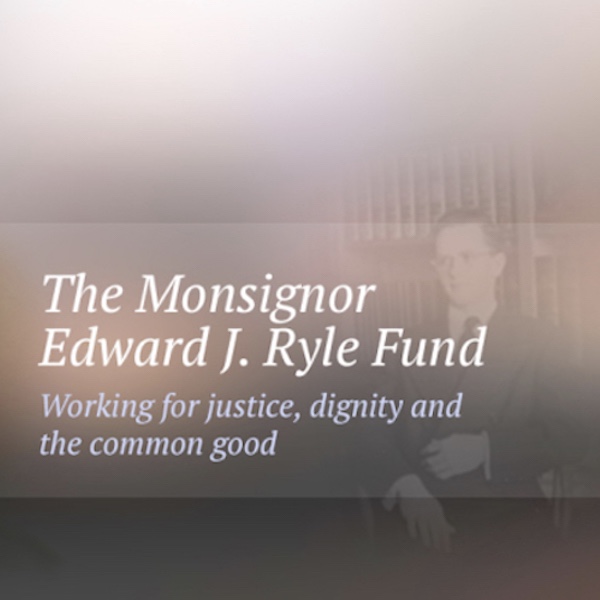
Jennifer Dokes joined the board of the Monsignor Edward J. Ryle Fund in January 2016. The fund, established in memory of a legendary Arizona scholar and advocate for social justice, promotes intelligent discourse in the public square.
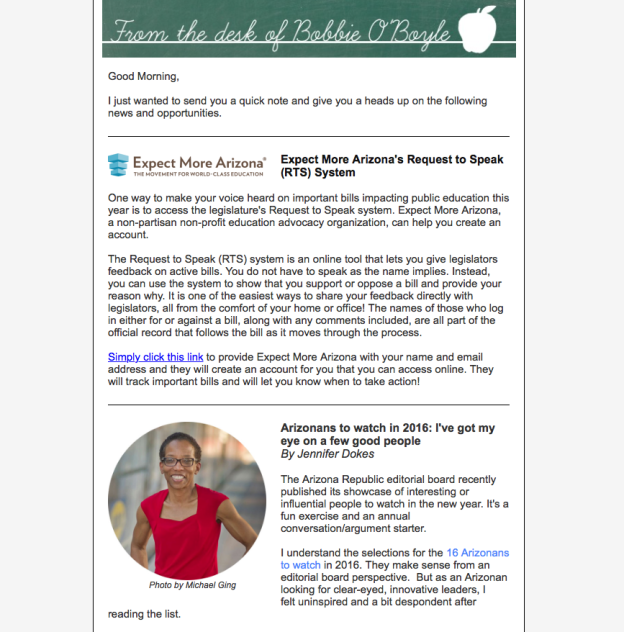
I thank Bobbie O’Boyle, executive director of the Arizona Educational Foundation, for including my list of 2016 inspired leaders in her newsletter. The list includes teacher of the year Christine Marsh.
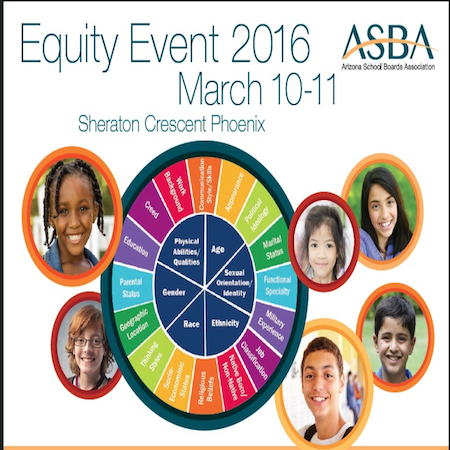
JDD Specialties facilitates discussions of key issues of the day. For example, founder Jennifer Dokes was the moderator for an Arizona School Boards Association discussion with thought leaders about the nexus between education equity and Arizona’s future.
The Arizona Republic editorial board recently published its showcase of interesting or influential people to watch in the new year. It’s a fun exercise and an annual conversation/argument starter.
I understand the selections for the 16 Arizonans to watch in 2016. They make sense from an editorial board perspective. But as an Arizonan looking for clear-eyed, innovative leaders, I felt uninspired and a bit despondent after reading the list.
I searched for something better from my perspective, not the editorial board’s perspective, and came up with a list of people I believe will make 2016 interesting for a lot of right reasons. Here are the Arizonans I’m watching in 2016:
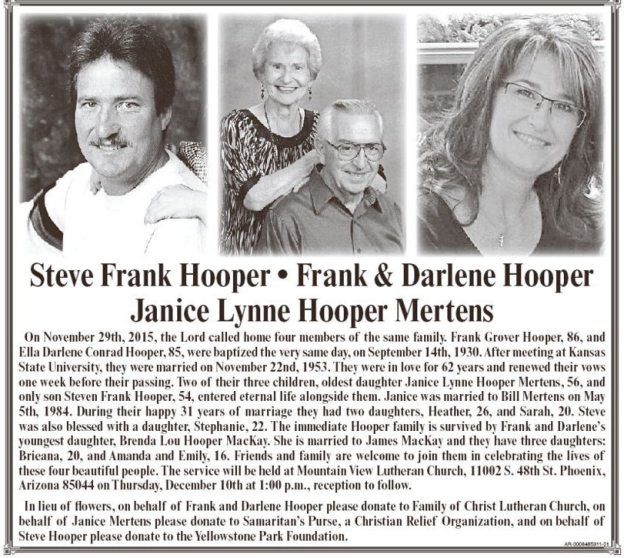
The three-panel photo in the Sunday obits caught my eye, but it was the name associated with it that touched my heart: Frank Hooper. Although we never met, I knew him as Frank Hooper, Sun Lakes.
For many years as a member of The Arizona Republic editorial board, I read and selected letters to the editor for publication. At one point, that was about 500 letters a week. I loved it for the insight into the minds of people who are intellectually or emotionally engaged in the news of the day.
Frank Hooper was a regular letter writer. I felt like I knew him well. His contributions to public discourse were thoughtful, respectful and concise. He obviously was comfortable with the written word and was confident enough to sign his name to his opinion and tell you where he lived. An anonymous Internet troll, he was not.
Frank had something to say about a lot of things, and although I often didn’t agree with him, I certainly appreciated his ability and desire to share his point of view in the marketplace of ideas that is the Opinions page. I found some of his letters on azcentral about Obamacare, Ferguson, inflation. One of his most recent ones published in June was about water conservation.
Frank, his wife and two of his children died in a horrible, head-on collision shortly after Thanksgiving. Speed and alcohol were likely factors. The other driver, who also died in the crash, had two DUI convictions.
If this had happened to another family and if Frank had seen the obit, I’m certain he would have had something to say. And it would have been worth printing.

Shaun McKinnon of The Arizona Republic wrote a beautiful story about how the $2 million Isle of the Tiger project at the Phoenix Zoo came to be. I heard another beautiful zoo story on Thursday, the night of the grand opening celebration of the exhibit.
Here’s a passage from Lisa Shover’s speech to about 450 people. (Lisa represented the Nina Mason Pulliam Charitable Trust, a major donor:
 I’m expecting to be hit with a heavy dose of nostalgia tonight at former Arizona Republic editorial board colleague Kathleen Ingley’s book event at the central Phoenix public library.
I’m expecting to be hit with a heavy dose of nostalgia tonight at former Arizona Republic editorial board colleague Kathleen Ingley’s book event at the central Phoenix public library.
Kathleen’s telling of the Jack Pfister story is a lesson plan for civic, business and political leaders on how to focus on what’s important in Arizona and how to accomplish visionary goals. Remember those days? I do. Generally speaking, leaders in power today are far removed from the spirit and purpose of the Jack Pfister  days. And we have a messes everywhere that show it.
days. And we have a messes everywhere that show it.
Former legendary lawmaker Art Hamilton, and former ASU president Lattie Coor, two fine gentlemen who led by example, will be among the panelists with Kathleen discussing the life and influence of Jack Pfister. (Kathleen teed up the book and the event with this Viewpoints column.
 Art and Lattie talking about Jack at the library named for Burton Barr, another legendary leader. Yeah. My date with nostalgia is at 6:30.
Art and Lattie talking about Jack at the library named for Burton Barr, another legendary leader. Yeah. My date with nostalgia is at 6:30.
“I’m very excited to be in Arizona because it’s where strong women can get things done.”
I like this partial quote from The Arizona Republic’s Q&A with Sheila Healy, the new executive director of the Arizona Democratic Party. It’s true. Women always have had a strong showing in Arizona politics.

 U.S. Secretary of Transportation Anthony Foxx will join leaders of Phoenix, Tempe and Mesa for an announcement today about LISC Phoenix and Raza Development Fund adding $30 million to a pool of transit-oriented development investment money.
U.S. Secretary of Transportation Anthony Foxx will join leaders of Phoenix, Tempe and Mesa for an announcement today about LISC Phoenix and Raza Development Fund adding $30 million to a pool of transit-oriented development investment money.
In 2011, LISC Phoenix and Raza Development Fund created a $20 million transit-oriented investment fund to that has helped create more than 2,000 units of affordable housing and 205,000 square feet of retail and community space. The fund leveraged $387 million in total investment activity. The additional $30 million in the investment fund will build on that success.
Some of the projects built with support of the fund include The Newton commercial project near Central Avenue and Camelback Road in Phoenix, the Gracie’s Village mixed-used development in Tempe and the Encore mid-rise senior housing project in downtown Mesa.
Secretary Foxx’s visit comes the day before the opening of the Metro light-rail extension in downtown Mesa and four days before Phoenix voters decide the fate of the Proposition 104 transit tax.

Briana, a best friend of my daughter, is a first responder. She is a freshly minted teacher beginning her first professional year of school. She’s running toward a crisis. It’s not a burning building; it’s Arizona’s public education system.
Teachers have left Arizona classrooms in droves, causing a critical shortage of educators. Rare is the school district that begins this academic year with a full complement of certified teachers. Many meet classroom needs with long-term substitute teachers.
Should Phoenix exist? What a dangerous question. I love it.
Zócalo Public Square and the ASU College of Public Service and Community Solutions launch a community conversation with the “Should Phoenix Exist?” prompt. The event June 2 at the Heard Museum features former Phoenix Mayor Terry Goddard and New York University professor Andrew Needham, author of “Power Lines: Phoenix and the Making of the Modern Southwest” and Sarah Porter, director of the Kyl Center for Water Policy at the ASU Morrison Institute.
“Make it snappy” takes on new meaning when writing “Quick Hits,” brief comments by Arizona Republic editorial board members featured at the top of the Opinions page. You must reach a point quickly and it has to pop.
Here is a sample of what I said in 2014.
Grand Avenue (U.S. 60 on the map) has challenges and potential so large it shouldn’t be ignored. It deserves more attention than it gets and probably more public resources than are available. A recent Republic article describes its current condition. An editorial I wrote in 2012 (below) has some of the hopeful attitude I still hold for it today.